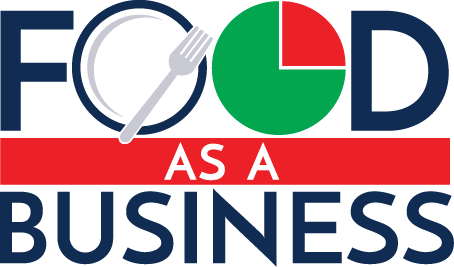Food Safety Certification and Market Access

Various federal, state, and local agencies regulate the safety of the food supply in the United States. Some of these agencies are the Food and Drug Administration (FDA), United States Department of Agriculture (USDA), Mississippi State Department of Health (MSDH), and Mississippi Department of Agriculture and Commerce (MDAC).
While some growers of fresh produce may be exempted from regulations, they have to provide safe food and can voluntarily opt for third-party accreditation. For example, USDA’s Good Agricultural Practices (GAP), GlobalG.A.P., and Primus GFS are accreditation bodies that conduct audits and certify that growers follow food safety measures in growing and handling produce.
National and international buyers (e.g., wholesale, retail, food service, processing, and other food businesses) recognize many of these third-party food safety audits and, in many cases, require that producers be certified. These buyers’ requirements create an incentive for producers to obtain food safety certifications in order to access certain markets. Different buyers may require different types of audits. Communicating with buyers before undergoing a specific audit is important to make sure you obtain the right certification.
Regulatory Environment: the Food Safety Modernization Act (FSMA)
One regulation affecting producers of fresh produce is the Produce Safety Rule (PSR) of the Food Safety Modernization Act (FSMA). The FSMA was signed into law in 2011 and includes provisions requiring the FDA to regulate fresh produce marketed in the United States to ensure a safe food supply. The Produce Safety Rule (21CFR112) of the FSMA went into effect in 2016, and it consists of standards for growing, harvesting, packing, and holding produce for human consumption. Not all producers are subject to this rule, as there are some exemptions:
- Produce items that are rarely consumed raw (e.g., sweet potatoes, potatoes, okra, collards, eggplants, sweet corn, food grains) or that undergo a processing activity that includes a “kill step” (e.g., cooking) are not covered by this rule.
- Famers with average annual (previous 3 years) produce sales less than $25,000 are not covered by this rule.
- A qualified exemption applies to operations with average annual (previous 3 years) food sales less than $500,000 and with more than half of their food sold directly to end users (e.g., farmers’ market, restaurant, or retailers in the state or within 275 miles of the farm).
It is important to know if your operation is exempt or covered by this rule. However, all producers have to produce safe food. To learn more about the Produce Safety Rule coverage, exemptions, and exclusions, visit the FDA
or the Produce Safety Alliance.
Only producers covered by the Produce Safety Rule will be subject to regulatory inspections. Other producers can demonstrate adherence to food safety practices in the marketplace by participating in voluntary food safety audits.
Voluntary Food Safety certifications Good Agricultural Practices
The Good Agricultural Practices (GAP) certification is a voluntary third-party food safety audit that ensures fruits and vegetables are handled safely. It is offered by the USDA and by other private third-party certification bodies. There are different types of GAP certifications offered by the USDA that allow producers to meet different levels of certification requirements of different buyers:
- Basic USDA GAP/GHP (Good Handling Practices): Allows farmers to demonstrate adherence to industry and FDA best practices.
- USDA Group GAP: Allows farmers to work together while obtaining their certification and split the cost of certification among themselves instead of paying the full price individually. Small- and medium-sized farmers working as a group, in food hubs, or in other marketing organizations can take advantage of this type of certification.
- USDA Harmonized GAP: The Harmonized GAP is more rigorous than the basic GAP audit. Its technical requirements are aligned with the Produce Safety Rule. The Harmonized GAP allows farmers to demonstrate adherence to food safety standards that are slowly becoming required by the FDA and wholesale markets alike. Please note that the Harmonized GAP audit does not replace the FSMA Produce Safety Rule inspections for covered producers.
- USDA Harmonized GAP Plus+: This certification meets the Harmonized GAP standards and additional requirements from the Global Food Safety Initiative (GFSI). This GAP audit is accepted as technically equivalent to GFSI. The GFSI is recognized by the largest buying companies in the food industry, and producers can use it in the marketplace to meet requirements of buyers requesting GFSI-recognized audits (this type of audit is often required when selling to international markets).
Why Is GAP Certification Important?
Market Access
There are different motivations for pursuing GAP certification. One of the main drivers for GAP-certified farmers is market access. A USDA GAP certification or other third-party food safety audit is often necessary to access certain markets, especially large grocery chains and wholesale, retail, or processing markets. Buyers require food safety certifications to ensure that the fresh produce they buy is grown and handled safely.
The basic GAP/GHP certification is required by many of these markets, but some markets are stricter than others and may have additional requirements. Larger buyers operating internationally are more likely to require suppliers to adhere to stricter food safety protocols. For example, a seller like Walmart will have its own food safety requirements. Smaller buyers may not require producers to obtain third-party food safety certification, but they may require producers to have a food safety plan in place for their farms; they may also perform on-farm visits (buyer audits). On the other hand, a small, local grocery store or restaurant is more likely to focus on knowing and having a relationship with the grower and may not demand a food safety certification or audit.
Because market requirements vary, it is essential to check with individual buyers before obtaining a certification (e.g., determine if a basic GAP certification is sufficient or if a different kind of certification is required). In addition, if you are planning on expanding your operation and accessing new markets, it is important to first identify what food safety requirements may be needed for those markets. You can prepare and obtain those certifications in advance and be market-ready. You also should frequently check with your buyers to discuss their expectations not only of product quality but also regarding food safety practices.
Keep in mind that markets and buyers that do not currently require a food safety certification, or that do not require observance of rigorous food safety programs, may require certification or become stricter in the future due to market forces. Consolidation of buyers may lead to stricter food safety requirements for producers. For example, farmers who previously worked with small- or medium-sized buyers that did not require GAP certification have been forced to pursue certification to remain in the market when their buyers were acquired by larger companies or when the company’s policies changed. In addition, while the majority of farmers’ markets in the United States do not require GAP certification from their sellers, some markets are starting to push adherence to food safety plans and others encourage GAP certification. While GAP and other third-party food safety certifications are voluntary, food safety certification matters to the farming industry.
Marketing Tool
Farmers who obtain GAP certification through USDA are featured on USDA’s website. This is an excellent marketing tool, as buyers can search for certified farms by location or product. Farms that are not certified will not appear on the website. To find certified farms in your region, visit USDA.gov. In addition, you can include information about your GAP certification in trading platforms like MarketMaker and in other market outlets to set yourself apart from competitors.
Public Trust
Food safety practices reduce the risk of foodborne illnesses, which can damage consumer trust and sales. Foodborne illnesses are frightening, and consumers continue to be wary of products that carried a foodborne pathogen even after the problem has been eliminated from commerce. There are many examples of how outbreaks negatively affect the demand of the products involved. For example, two recent Escherichia coli (E. coli) outbreaks in 2018 led to reduced product sales, which did not recover after some romaine lettuce was declared safe to consume again. In some circumstances, the source of contamination cannot be identified. However, when the source can be traced back to a single farm, the reputation of that farm could be irreparably damaged. Often, when the source of contamination cannot be traced to a specific location, the whole industry is affected, emphasizing the importance of food safety practices throughout the industry.
Food safety practices protect not only consumers but producers, as well. In addition to helping prevent foodborne outbreaks, a food safety certification opens market channels and the opportunity to increase sales. If a farmer wishes to access the wholesale, retail, food service, or processing markets, he or she may not be able to do so without a food safety certification.
Facilitates Compliance with Food Safety Regulations
Obtaining certification and keeping up with certification standards also makes it easier to implement future food safety regulations, such as the rules covered in the Produce Safety Rule. Farmers who previously acquired a GAP certification and are later required to implement the Produce Safety Rule may not face as many challenges implementing the rule as those without a certification. For example, a farmer with a Harmonized GAP certification will already have the proper food safety practices in place on the farm.
Food Safety Starts on the Farm
While obtaining a food safety certification like GAP is beneficial, producers do not have to be certified in order to maintain good food safety practices on the farm. Below are some basic recommendations:
- Frequently wash farm tools, containers, equipment, and contact surfaces to get rid of all dirt and other materials that may be left between uses. This will decrease the potential risk of cross-contamination.
- All individuals in contact with produce, surfaces, and equipment should properly wash their hands and follow good worker hygiene. Keep in mind that, even with clean hands, the more a product is touched and handled by different people, the higher the risk of contamination.
- Animals (both domesticated and wild) can cause risk of contamination on the farm and in produce. Check for signs of any wildlife and make sure pets do not enter produce fields. If there are signs of animal contact with your products, it is important to document the incident and discard any contaminated produce. It is always a good idea to fence the growing area to prevent any potential contamination from animals.
- Keep records of safety measures on the farm. Records will help with traceability and can help protect your farm. Recordkeeping is often overlooked and underestimated in food safety efforts. If there are no records to show what food safety measures are in place on a farm, then a farmer cannot prove his/her efforts. Online resources, such as recordkeeping templates, can make recordkeeping less overwhelming. For some resources, visit the On-farm Food Safety Project (OFFS).
- Attend food safety trainings conducted by qualified professionals to stay informed about new or updated regulations and certification procedures, as well as to learn about resources available.
There are programs that can help producers obtain a GAP certification. For example, the Mississippi Department of Agriculture and Commerce offers a GAP/GHP cost-share program. This program reimburses producers for 75 percent of the audit cost up to a maximum of $500 per year; it is offered on a first-come, first-served basis.
Summary
- The FDA FSMA Produce Safety Rule is mandatory for covered farms, products, and activities; GAP certification is a voluntary program offered by the USDA and other third-party accreditation bodies.
- Although GAP is voluntary, it is important to obtain certification in order to access many markets, including wholesale, retail, foodservice, and processing.
- Checking market requirements before expanding your operation is key due to the varying requirements by each individual buyer.
- Keeping records of food safety activities and certifications can be very beneficial to your operation.
- Good food safety practices matter whether or not you are certified. Food safety practices are vital for maintaining consumer trust—food safety practices protect consumers as well as producers and the industry.
- Certification will open doors to markets that may not be otherwise accessible.
- Although GAP certification can be costly, there are programs (such as Group GAP or cost-share programs) that can make it more affordable for small- and medium-sized producers.
Resources
- To learn more about the FDA FSMA Produce Safety Rule:
- FDA’s website
- To identify if you are covered by the rule
- To learn about trainings in your region and to access resources, visit the Produce Safety Alliance
- To learn more about the GAP/GHP Certification Cost-Share Program, visit the Mississippi Department of Agriculture and Commerce
- For food safety tools and templates you can adapt for your farm operation, visit the On-farm Food Safety Project (OFFS)
- To learn more about the USDA food safety audit programs in Mississippi (e.g., GAP), visit the Mississippi Department of Agriculture and Commerce
- To learn more about how the USDA GAP Program is aligned with FDA’s Food Safety Rule
- To learn more about USDA Harmonized GAP Plus+ audit service
This material is based upon work supported by FY16 USDA NIFA AFRI ELI REEU Fellowships Program of the NIFA, USDA, Award Number 2017-67033-26015, and USDA NIFA Award Number 2015-49200-24228.
The information given here is for educational purposes only. References to commercial products, trade names, or suppliers are made with the understanding that no endorsement is implied and that no discrimination against other products or suppliers is intended.
Publication 3287 (2-22)
By Elizabeth Canales, PhD, Assistant Professor, and Hannah Irwin, Undergraduate Extension Assistant, Agricultural Economics.
The Mississippi State University Extension Service is working to ensure all web content is accessible to all users. If you need assistance accessing any of our content, please email the webteam or call 662-325-2262.







